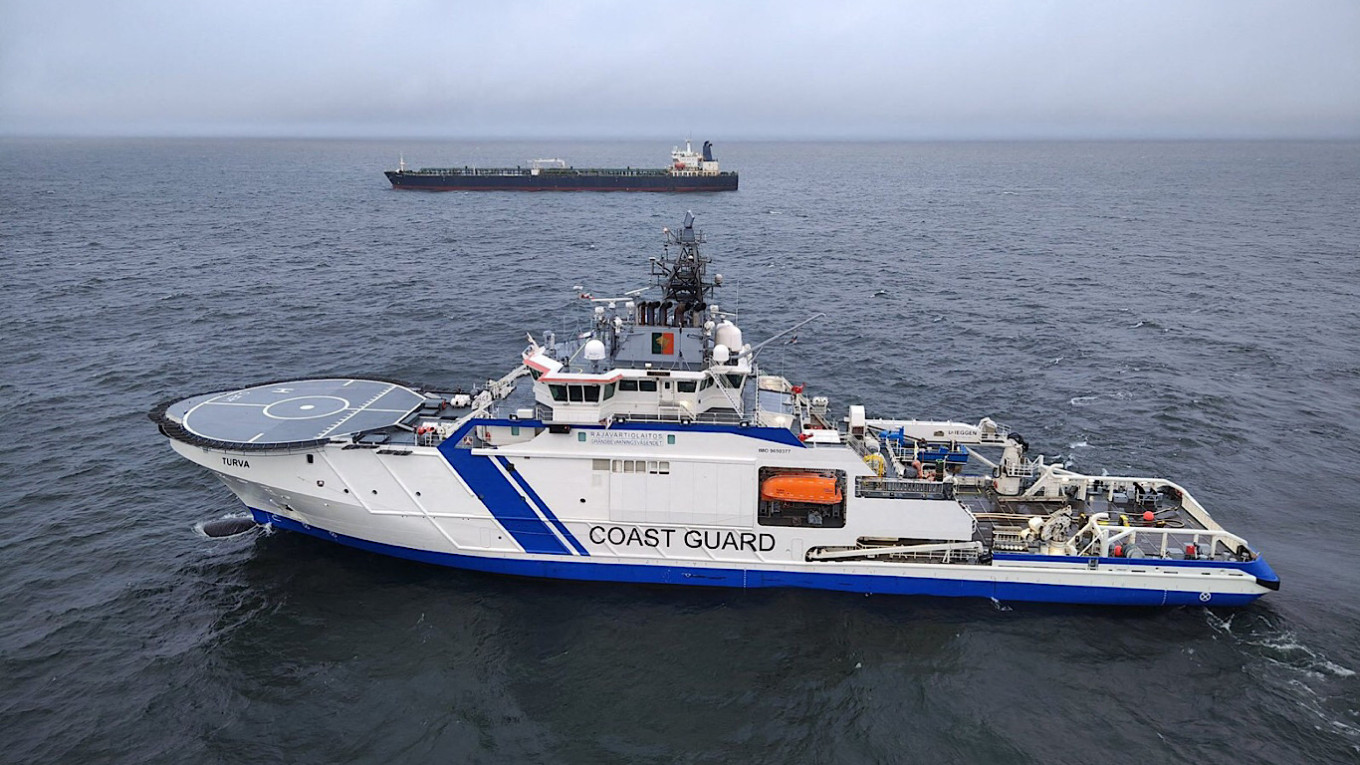A court in Helsinki dismissed a case against three crew members of a vessel from Russia’s so-called “shadow fleet,” who were suspected of damaging undersea cables in the Baltic Sea, citing a lack of jurisdiction.
The captain and two senior officers of the Cook Islands-registered oil tanker Eagle S were alleged to have dragged their anchor along the seabed for approximately 90 kilometers (56 miles), resulting in damage to five underwater cables in the Gulf of Finland on December 25, 2024.
The incident affected the EstLink 2 power cable and four telecom cables linking Finland and Estonia, marking it as one of several similar events that occurred last year.
Since Russia’s major invasion of Ukraine in February 2022, rising tensions in the Baltic region have led many experts and political figures to interpret the suspected sabotage as part of a broader “hybrid war” waged by Russia against Western nations.
The Helsinki District Court announced its decision to dismiss the case against the Eagle S, including any claims for damages, stating that Finnish criminal law could not be applied.
Prosecutors accused the captain, Davit Vadatchkoria from Georgia, along with senior officers Robert Egizaryan and Santosh Kumar Chaurasia, of intentionally neglecting their duties after departing from the Russian port of Ust-Luga.
They faced charges of “aggravated criminal mischief and aggravated interference with communications,” with prosecutors recommending prison sentences of over two and a half years.
According to the prosecution, the crew “failed to investigate the causes of the drop in speed and engine revolutions,” even though it was apparent that external forces were impacting the ship.
The defendants testified in court during August and September, asserting their innocence.
The defense contended that Finland did not have jurisdiction since the cable damage occurred outside its territorial waters, while the prosecution argued that Finland’s critical infrastructure was at risk.
The court determined that the incident didn’t result in significant consequences for Finland’s energy supply or telecommunications that would satisfy the legal definitions of criminal mischief or aggravated criminal mischief, despite the occurrence causing substantial economic damage.
It concluded that the anchor loss stemmed from a malfunction in the securing mechanism and qualified as a navigational incident per the United Nations Convention on the Law of the Sea, noting that jurisdiction should lie with the flag state of the ship or the defendants’ countries of origin.
After the trial concluded in September, the court lifted travel bans placed on the suspects since December 2024.
The defendants maintained that the cable cuts were accidental and attributed the ship’s slowed speed to engine issues and poor weather conditions.
Vadatchkoria stated that there had been no signs of the anchor detaching from the vessel, emphasizing that he had no reason to suspect anything was amiss.
However, prosecutors argued that the crew should have been aware of the anchor dragging behind the ship.
Prosecutor Mikko Larkia questioned, “If a ship drags an anchor for several hours over 90 kilometers, could it be that no one noticed?”
The trial did not address any potential Russian involvement in the incident.

